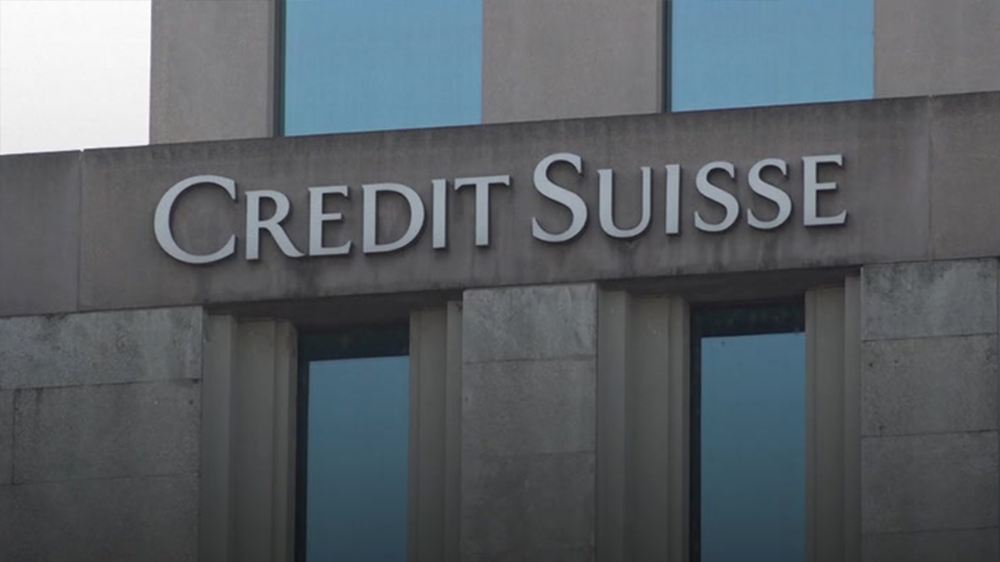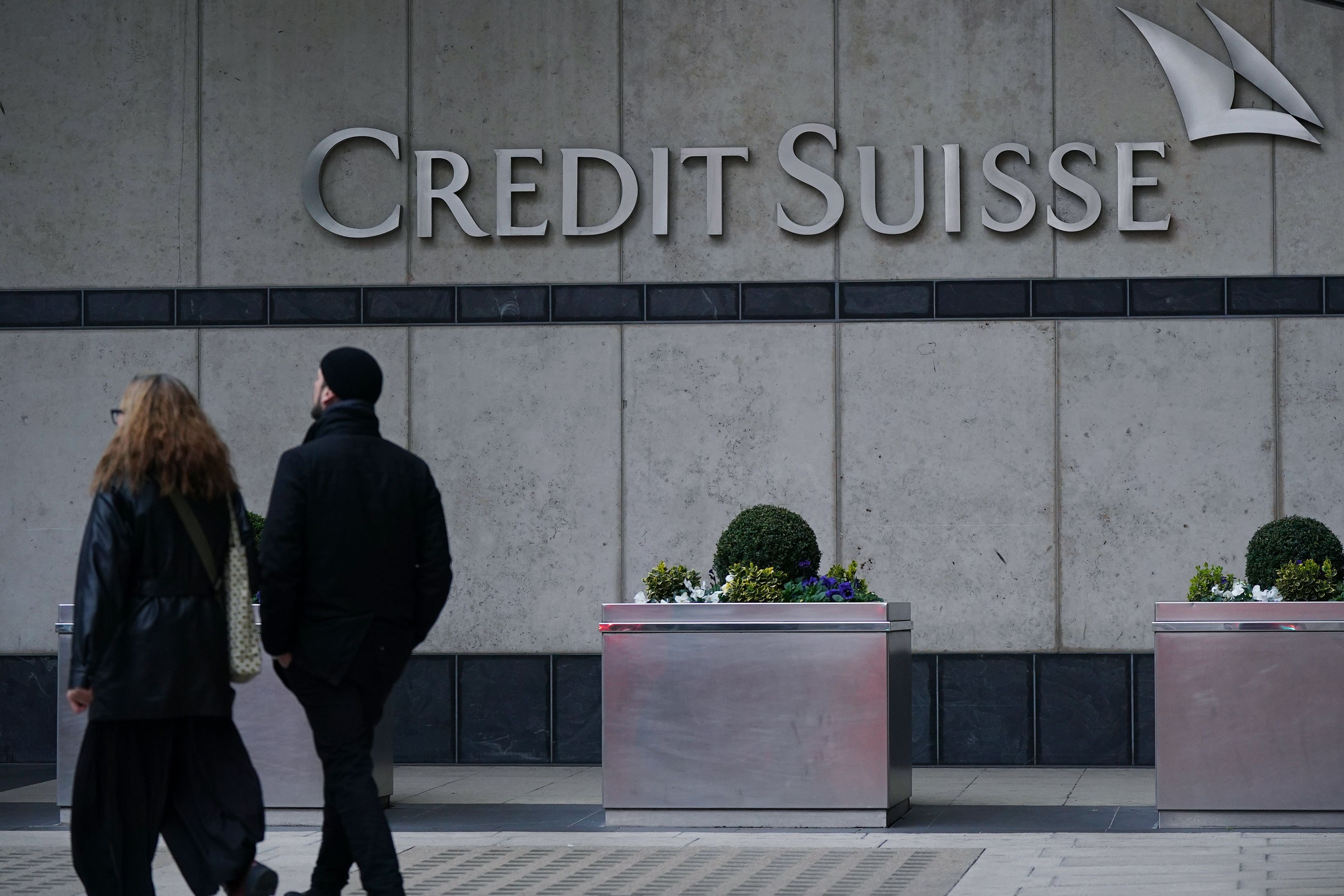Credit Suisse: What does the takeover mean for UK banks and is your money safe?
Bank of England insists UK’s banking system is ‘safe and sound’
Your support helps us to tell the story
From reproductive rights to climate change to Big Tech, The Independent is on the ground when the story is developing. Whether it's investigating the financials of Elon Musk's pro-Trump PAC or producing our latest documentary, 'The A Word', which shines a light on the American women fighting for reproductive rights, we know how important it is to parse out the facts from the messaging.
At such a critical moment in US history, we need reporters on the ground. Your donation allows us to keep sending journalists to speak to both sides of the story.
The Independent is trusted by Americans across the entire political spectrum. And unlike many other quality news outlets, we choose not to lock Americans out of our reporting and analysis with paywalls. We believe quality journalism should be available to everyone, paid for by those who can afford it.
Your support makes all the difference.Anxieties over the security of UK banks have spiked after shares in Credit Suisse dropped following its £2.6 billion takeover by rival UBS.
Shares plummeted 61.95 per cent in premarket trading in Zurich to 0.61 Swiss francs (£0.54), while those in UBS were down 4.73 per cent to 15.81 francs.
Credit Suisse has had troubles for many months but things took a turn last week when its bid for fresh funding was rejected by its top shareholder, the Saudi National Bank (SNB).
Frantic talks at the weekend eventually led to UBS stepping in to rescue the lender in a deal brokered by Swiss authorities to avoid further chaos in markets after a series of other high-profile financial failures in recent weeks.
The Bank of England (BoE) was quick to reassure the country that the UK’s banking system is “safe and sound” soon after the news broke.
Six of the world’s central banks, including the BoE and the US Federal Reserve, joined forces to help contain the spread of the crisis by boosting dollar flows through longstanding US dollar swap line arrangements.
Swap lines are agreements between two countries to make currency more readily available for central banks to lend to private banks. This allows them to maintain their reserve requirements – funds a bank holds to ensure it can pay out to customers in case of mass withdrawals.
It is hoped the move, which is due to run until at least the end of April, will boost market confidence over the health of other lenders.

What does this mean for UK banks
Banking shares in London have been hammered by the fears but Bank of England governor Andrew Bailey was quick on Sunday night to insist the financial system in the UK is “well capitalised and funded, and remains safe and sound”.
However, on Monday morning, FTSE 100 was down 0.7 per cent as markets opened in London.
Commenting on why investors may be apprehensive, Innes McFee, chief global economist at Oxford Economics, said: “UBS’ takeover of Credit Suisse, coming off the back of the failure of regional lenders in the US, has kept funding concerns elevated in markets. In particular, the decision to write down AT1 Bonds will make investors in that type of bank security think twice.”

That being said, he agreed that the UK financial system should be well-equipped to handle the fallout from Credit Suisse.
He explained: “Fundamentally though liquidity and capital ratios in the banking sector, and in particular in the UK, are strong and have been tested against theoretical economic downturns and depositor runs as the part of the normal planning of these businesses.
“An aggressive rate hiking cycle, falling property prices and weak economic growth are a testing environment for the UK banking sector but one that regulatory changes over the past 15 years should have adequately prepared it for.”
Downing Street has said the UK banking system remains “safe and well-capitalised” following the takeover of the troubled Credit Suisse bank.
The prime minister’s official spokesman said that Rishi Sunak has been regularly updated on the situation by the Treasury and the Bank of England, and has been in touch with the Swiss president.
“Obviously it is good that a resolution has seen secured,” the spokesman said.
“As the Bank of England has said, we believe the UK banking system remains safe and well-capitalised.
“We have a strong regulatory system and we have taken a number of steps over the past 15 years, together with the Bank of England, to strengthen that system.”
Is my money safe?
For the aforementioned reason, it is widely understood that customer funds are safe, though it typically serves wealthy clients and businesses rather than everyday savers.
The UK government safeguards deposits up to £85,000 when banks go bust. Though many experts agree that the mammoth capital cushions built up among banks will help avoid another full-blown crisis, there are worries about what it may mean for their appetite to lend.

It is understood that the BoE has ordered lenders to disclose their exposure to global bond markets, which appear to be at the heart of many of the problems, particularly amid US banks.
Susannah Streeter at Hargreaves Lansdown said: “As risk aversion grips the sector, the worry is that overall banks will become more cautious in their lending, which could be another blow for already fragile housing markets in particular.
“Worries are rattling investors about what repercussions a potential lending squeeze will have on the global economy.”



Join our commenting forum
Join thought-provoking conversations, follow other Independent readers and see their replies
Comments